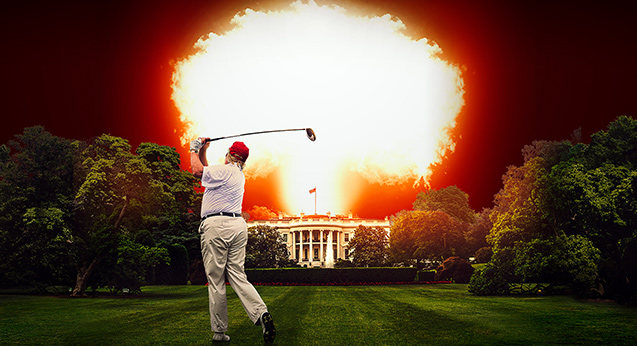It’s pleasantly surprising how relevant Fahrenheit 11/9 feels, despite its problems
A few large missteps that stop it from being a great film.

Palme d’Or-winning documentarian Michael Moore takes a look at Donald Trump’s rise to the US presidency on November 9, 2016. Can this documentary tell us anything that Twitter hasn’t already? According to critic Daniel Rutledge, it can, despite some large missteps.
How does Michael Moore make a documentary in his classic style amid the current state of America? It seems like an obsolete format, given the staggering amount of news articles about the current tenant of the White House that come out daily along with the baffling, incriminating tweets he frequently posts himself. Alas, I was very pleasantly surprised at just how relevant and valuable this feature feels, but Moore makes a few large missteps that stop it from being a great film.
Thankfully, Trump himself doesn’t feature a great deal in Fahrenheit 11/9. His ghastly orange shadow hangs over everything, for sure, but he’s merely a symptom of the sickness this film examines. It wisely doesn’t catalogue his crimes and innumerable outrages, assuming audience knowledge on that front and attempting instead to look at the bigger picture.
The sad tale of the Flint water crisis is the heart of this movie and I can’t imagine many people getting through it with dry eyes. Seeing the devastation of a community literally poisoned by corporate greed is truly heartbreaking. The voiceover calling it “ethnic cleansing”, however, is an unnecessary overshoot.
Moore’s demonising of the news media is one of the more dangerous elements of the film. Journalism is suffering a crisis internationally—under attack from despots and facing crumbling revenues. Indeed, news outlets are one of the many guilty players in getting Trump elected as US president, but a free press is a vital to holding him and other tyrants to account. The last thing we need is the supposed good guys chucking petrol on the fire.
But perhaps the most foolish section is when we get to the Nazi stuff. Trump is explicitly likened to Hitler in a way that’s played for laughs one minute, then meant to be awfully sobering the next. The Third Reich leader’s rise to power is comparable in ways to the former host of The Apprentice, but there’s simply no getting around how alarmist this feels.
Moore’s ecstatic championing of the new progressive movement in the US and the March for our Lives group seems a touch naive, but it sure as shit feels good to have it as a glimmer of hope in an otherwise depressing, often upsetting documentary. This is not the definitive account of the Trump era some may have hoped for, but it’s nonetheless a powerful and moving film I recommend, despite its problems.






















